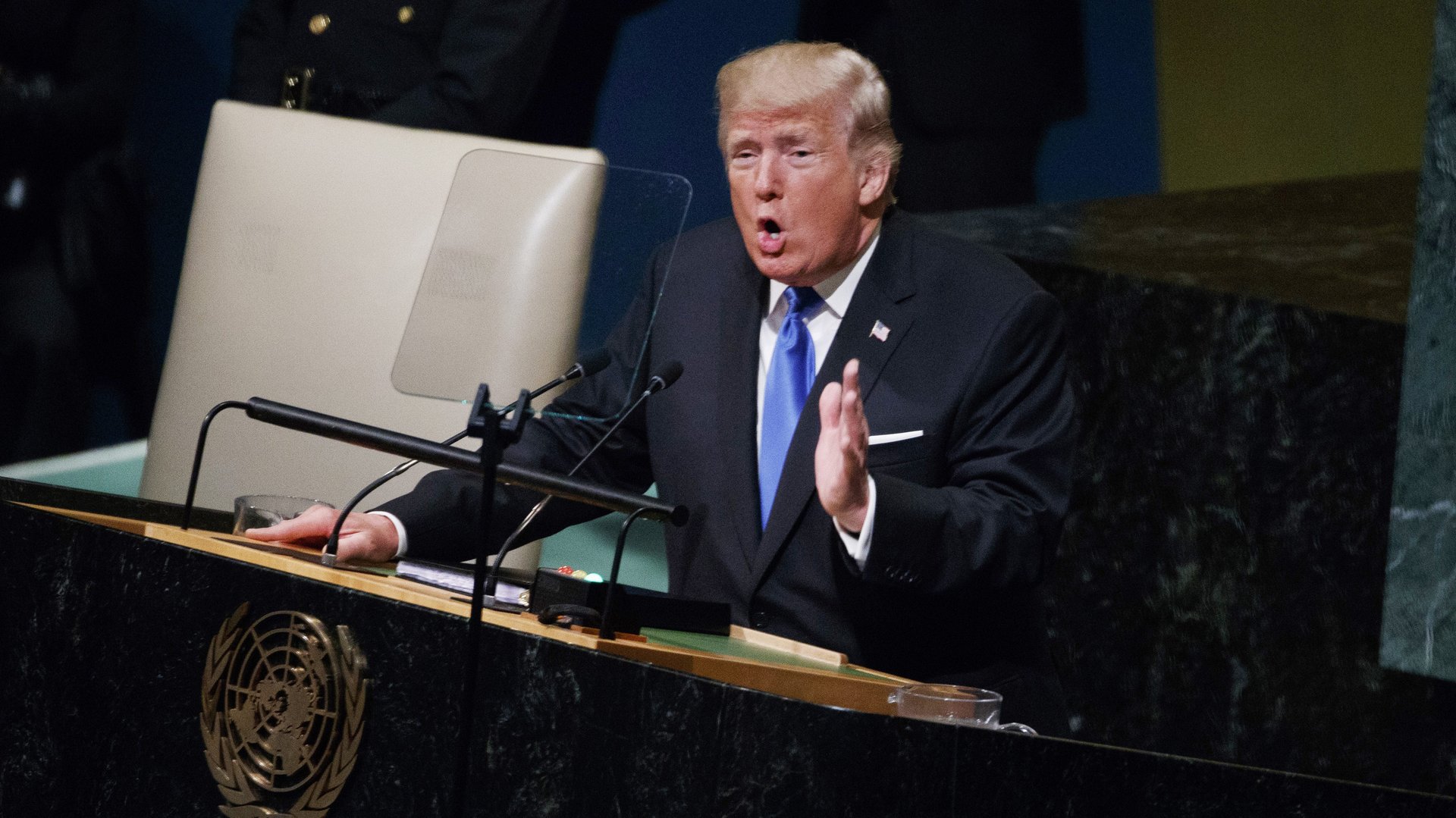Trump mentioned sovereignty 21 times in a speech heralding a new American worldview
“Our success depends on a coalition of strong and independent nations that embrace their sovereignty, to promote security, prosperity, and peace, for themselves and for the world.”


“Our success depends on a coalition of strong and independent nations that embrace their sovereignty, to promote security, prosperity, and peace, for themselves and for the world.”
“We do not expect diverse countries to share the same cultures, traditions, or even systems of government, but we do expect all nations to uphold these two core sovereign duties: to respect the interests of their own people and the rights of every other sovereign nation.”
“Strong sovereign nations let diverse countries with different values, different cultures, and different dreams not just coexist, but work side by side on the basis of mutual respect.”
You might expect these kinds of words from Russia’s Vladimir Putin or China’s Xi Jinping. Yet today (Sept. 19), the UN General Assembly (UNGA) heard them from the leader of the country that has traditionally spearheaded the cause of internationalism: the United States.
In his first UNGA address, Donald Trump said the words “sovereign” or “sovereignty” 21 times in a 41-minute speech, according to a White House transcript, striking a tricky balance between his calls for global cooperation against threats such as terrorism and his unabashed belief in the doctrine of “America First.”
Equally notable was the paucity of mentions of “democracy.” It was beaten out by “patriotism.”
The speech will have raised eyebrows among the US’s traditional, globalist allies in Europe, Canada, and the rest of the English-speaking world. But it will doubtless have resonated with many others. “As president of the United States, I will always put America first. Just like you, as the leaders of your countries, will always and should always put your countries first,” Trump said, wringing applause from parts of the assembly. ”In America, we do not seek to impose our way of life on anyone, but rather to let it shine as an example for everyone to watch,” he also said, repeating a promise first made in his inauguration speech.
That kind of language warms the hearts of nations that have long suffered Western harangues about human rights, corruption, and democratic norms. It also fits with Trump’s record of feeling more comfortable around autocrats from the likes of Saudi Arabia and Egypt than with America’s historic democratic allies.
His speech also repudiated the long-held foreign policy of the Republican party that put him in office. In a clear and damning reference to the interventionism of president George W. Bush, a fellow Republican, Trump asserted that when the UN was founded after World War Two, “we did not seek territorial expansion or attempt to oppose and impose our way of life on others. Instead, we helped build institutions such as this one to defend sovereignty, security, and prosperity for all.”
This new framing of sovereignty as the source of global peace and prosperity probably won’t be taken entirely at face value. Trump has always based his argument for American sovereignty around one thing: transactionalism, or in his kind of language, good deals. “We can no longer be taken advantage of or enter into a one-sided deal where the United States gets nothing in return,” he said at the UN.
This attitude fed into his well-worn complaint that the US alone pays 22% of the UN’s budget. But his follow-up was crucial: “The US bears an unfair cost of the burden, but if it could actually accomplish its stated goals…this investment would be well worth it.”
After years of his nationalist, isolationist rhetoric, that’s not exactly convincing. However, for internationalists who have been nervously hand-wringing about the prospect of Trump’s UN speech matching his angry NATO summit tirade, it’s better than nothing.